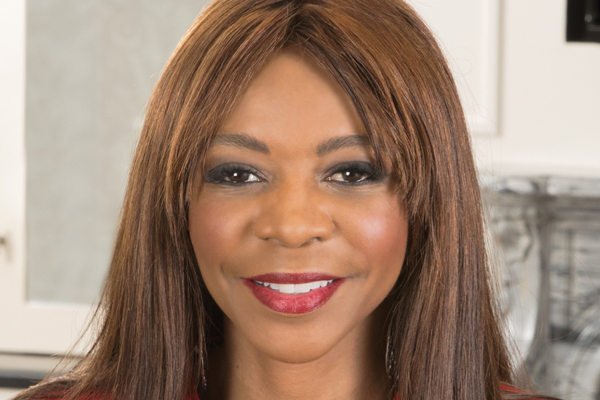Global Economist, Dambisa Moyo
The world has changed so much in the 21st century that its problems require a new set of policies and reinvigorated institutions, says economist Dambisa Moyo.
“I don’t think we can look out into the 21st century and assume that the world is going to keep growing at the same pace,” Moyo says. “We are facing some unique factors, and there’s a confluence of factors that is hurting us economically like never before.”
Don’t believe the stock market euphoria, says Moyo, who will deliver a keynote speech about her economic outlook at Financial Advisor’s 2017 Inside Alternatives Conference on October 23 in Denver. The U.S. economy is unlikely to grow much moving forward, she adds.
Moyo, a widely published expert on economic, geopolitical and technological issues and a three-time New York Times best-selling author who sits on the boards of several public companies, says the U.S. economy has a better than one-in-three chance of experiencing a recession in the next 12 months.
“The [International Monetary Fund] has downgraded growth prospects for the U.S. and U.K., and when we think about the way business cycles work, within every eight years or so industrial countries are due for a recession,” she says.
“We’re due for a recession from a business cycle perspective. We should ask if we are on borrowed time.”
Even if the U.S. economy avoids a recession in the near term, growth is likely to decline worldwide, driven down by a confluence of long-term global issues, she says.
Demographic change already dampens the long-term prospects of the developed world, where fertility rates have plummeted. Moyo believes such changes will continue to spread to developing and emerging markets.
“It’s clear that the IMF didn’t expect that we would see the rates of growth that we saw before 2014 ever again, and that’s emblematic of the challenges the world faces,” she says. “I do not think many emerging market countries will be able to meet the 7% per annum growth which is important to double per capita income, which means they will struggle and there will be implications for the global order.”
Simultaneously, technological disruption threatens up to half of the world’s workforce with unemployment, she says, adding that disruption could create an entrenched, unemployed underclass as technology displaces service industry jobs.
Worsening inequality is already stratifying masses of people in the West by socioeconomic class and exacerbating political divisions. Underinvestment in education has reduced social mobility, she says, while globalization has led to the relocation of many manufacturing and industry jobs once held by middle-class Westerners.
“Policy makers aren’t prepared for what this will do to people old and young who aren’t going to be supported anymore in the labor force,” Moyo says. “As economists, we can take a positive view and say just because we’re not sure what sector will eventually absorb this workforce, especially the unskilled, today doesn’t necessarily mean it won’t happen. But a public policy maker can’t afford to not have a plan.”
Moyo believes the scarcity of natural resources will create new competition between regions, countries and peoples that could spill over into conflict.
As these structural issues deepen, many institutional managers are already beginning to de-risk, and individual investors are finding fewer places to seek low-risk growth and income, Moyo notes.
“Many asset managers earlier in the year decided to sit on the sidelines. [They] moved out of equity, and looking back people are saying that they were kind of dumb to do so because the market moved to record highs,” Moyo says. “It’s a little too simplistic to say that, given the global political and economic challenges and the structural headwinds we’re dealing with.”
The world is turning away from globalization during a period when international cooperation and coordination is crucial, she notes. More than 600 discriminatory trade policies have been introduced in the past 10 years, many of them by the U.S. and Europe, she says.
The United Kingdom’s vote to leave the European Union and the election of nationalist figureheads like President Donald Trump are accelerating the anti-global push, says Moyo. Many countries once engaged by the U.S. are beginning to turn inward and, according to the World Trade Organization, global trade has been in decline for the past decade.
“The rhetoric around protectionism has reached a fever pitch,” she says. “[French President Emmanuel] Macron has pushed the idea of Europe first. ... There’s been an increase in home bias, and that trend should continue in a world that’s more uncertain, where growth is more precarious.”
At the same time, the West is beginning to raise interest rates, which may cause American investors to keep more of their money at home, she says. As a result, the flow of money in and out of the U.S. is in a persistent state of decline, as is international lending, and Western money is flowing out of emerging markets.
“Companies are becoming more siloed. They’re moving away from the globalized model,” she says. “Companies heavily focused on being disaggregated, like a Unilever Pakistan or an Anheuser-Busch Belgium, will do better than those who are still back-footed in a globalization agenda.”
Moyo warns that developed market debt is an issue that must be addressed with a long-term solution. While the Congressional Budget Office predicts that the national debt will double over the next 30 years, debt held by private companies has also ballooned during the recent period of low interest rate policies. Simultaneously, American consumers have racked up higher credit card, student loan and auto loan balances.
Ideas For The Long Term
September 1, 2017
« Previous Article
| Next Article »
Login in order to post a comment








